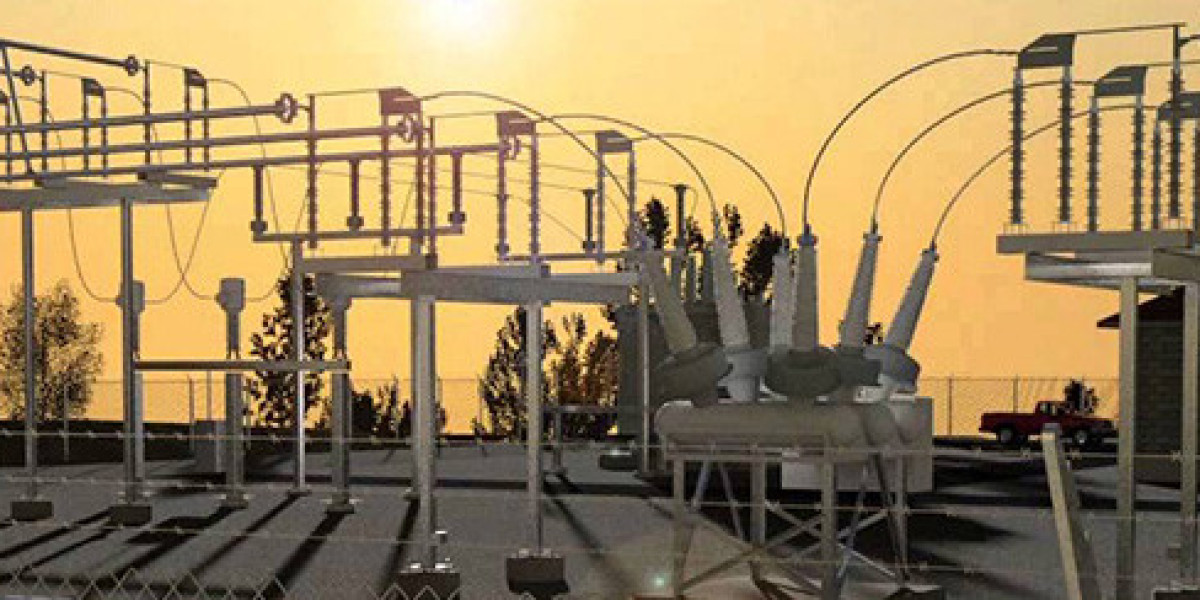High voltage testing is a cornerstone in the field of electrical power services, ensuring the safety, reliability, and longevity of electrical equipment across residential, commercial, and industrial applications. Whether you are searching for residential electrical power services near me or need commercial electrical power services for small businesses, high voltage testing plays a vital role in verifying that electrical systems can withstand operational stresses and deliver uninterrupted power.
This essential procedure supports a broad spectrum of services, including affordable electrical power services for home renovations, licensed electrical power services for industrial facilities, and sustainable electrical power services for eco-friendly homes. It also underpins specialized services such as electrical power services for solar panel installation, custom electrical power services for smart homes, and electrical power services for EV charging station setup.
In this post, we explore the importance of high voltage testing within the context of modern electrical power services, highlighting how it integrates with key services like substation design, testing & commissioning, high voltage operation and maintenance (O&M), solar farm services, power system analysis, protection & control, and 3D digital substation designs.
What is High Voltage Testing and Why is it Essential?
High voltage testing involves applying voltages significantly higher than normal operating levels to electrical equipment to verify insulation strength and detect manufacturing defects or deterioration. This testing ensures that components such as transformers, switchgear, cables, and insulators can safely withstand overvoltages that occur during normal operation or fault conditions.
For example, in residential electrical power services near me, high voltage testing guarantees that home electrical systems and renovation upgrades meet safety standards and are resilient against electrical surges. Similarly, commercial electrical power services for small businesses rely on these tests to prevent costly downtime and equipment damage.
High voltage testing is also critical for licensed electrical power services for industrial facilities, where large-scale machinery and complex electrical networks demand rigorous validation to ensure safety and regulatory compliance. It supports ongoing electrical power services for factory equipment maintenance, minimizing the risk of unexpected failures.
Types of High Voltage Tests and Their Applications
Several types of high voltage tests are commonly performed, each serving a specific purpose:
AC Withstand Voltage Test: Applies alternating current at power frequency (50/60 Hz) to check insulation integrity. This is widely used for routine testing of electrical equipment before installation.
DC Withstand Voltage Test: Uses direct current to detect local insulation defects. It is often preferred in production environments because it is less likely to cause damage during testing and requires fewer safety precautions.
Impulse Voltage Test: Simulates lightning strikes or switching surges to evaluate equipment’s ability to withstand transient overvoltages.
Partial Discharge Testing: Detects small electrical discharges within insulation that indicate degradation, allowing early fault detection.
These tests are crucial for services such as electrical power services for solar panel installation and solar farm services, where high voltage equipment must be tested to ensure stable integration with the grid.
Integration with Substation Design and 3D Digital Models
Modern electrical power systems rely on well-designed substations to transform and distribute power efficiently. Substation design incorporates high voltage testing to verify that all components meet dielectric strength requirements. The use of 3D digital substation designs enhances this process by allowing engineers to simulate electrical stresses and optimize layouts before construction.
This integration ensures that substations can support reliable electrical power services for office buildings and electrical power services for property management companies, providing a stable power supply for diverse users.
Testing & Commissioning: Validating System Readiness
High voltage testing is a critical phase within testing & commissioning of electrical installations. Before energizing a system, comprehensive tests confirm that insulation, protective devices, and control systems function correctly under high voltage conditions.
This validation is essential for certified electrical power services for construction projects, ensuring compliance with safety standards and preventing costly rework. It also supports emergency electrical power services 24/7 availability by verifying that backup systems, such as those involved in electrical power services for backup generator installation, will operate reliably during power outages.
Supporting Sustainable and Smart Energy Solutions
The rise of renewable energy and smart technologies demands rigorous high voltage testing to ensure system stability. Sustainable electrical power services for eco-friendly homes and custom electrical power services for smart homes depend on tested and reliable electrical infrastructure.
High voltage testing of solar farm equipment ensures that solar farm services deliver consistent power without compromising grid safety. Similarly, electrical power services for EV charging station setup require tested high voltage connections to handle increased loads safely.
High Voltage O&M and Power System Analysis
Ongoing high voltage operation and maintenance (O&M) relies on periodic high voltage testing to detect insulation deterioration and prevent failures. Combined with power system analysis, these services optimize system performance and extend equipment life.
For industrial clients, this means fewer disruptions and enhanced safety. For residential and commercial customers, it translates into uninterrupted access to power and peace of mind.
Protection & Control: Safeguarding Electrical Networks
High voltage testing also verifies the functionality of protection & control systems, which isolate faults and prevent damage. Properly tested protection devices are crucial for maintaining system stability and supporting electrical power services for factory equipment maintenance and other critical operations.
Safety Considerations in High Voltage Testing
Due to the extreme voltages involved, high voltage testing requires strict safety protocols. Testing areas are secured with interlocks and warning systems to prevent accidental access. Equipment is designed with current-limiting resistors and staged voltage application to minimize risk during breakdowns.
These precautions ensure that testing supports affordable electrical power services for home renovations and other services without compromising the safety of personnel or end-users.
Conclusion
High voltage testing is a critical procedure that underpins the reliability, safety, and efficiency of electrical power services across all sectors. Whether you are seeking residential electrical power services near me, commercial electrical power services for small businesses, or licensed electrical power services for industrial facilities, high voltage testing ensures that electrical systems meet rigorous standards and perform reliably.








